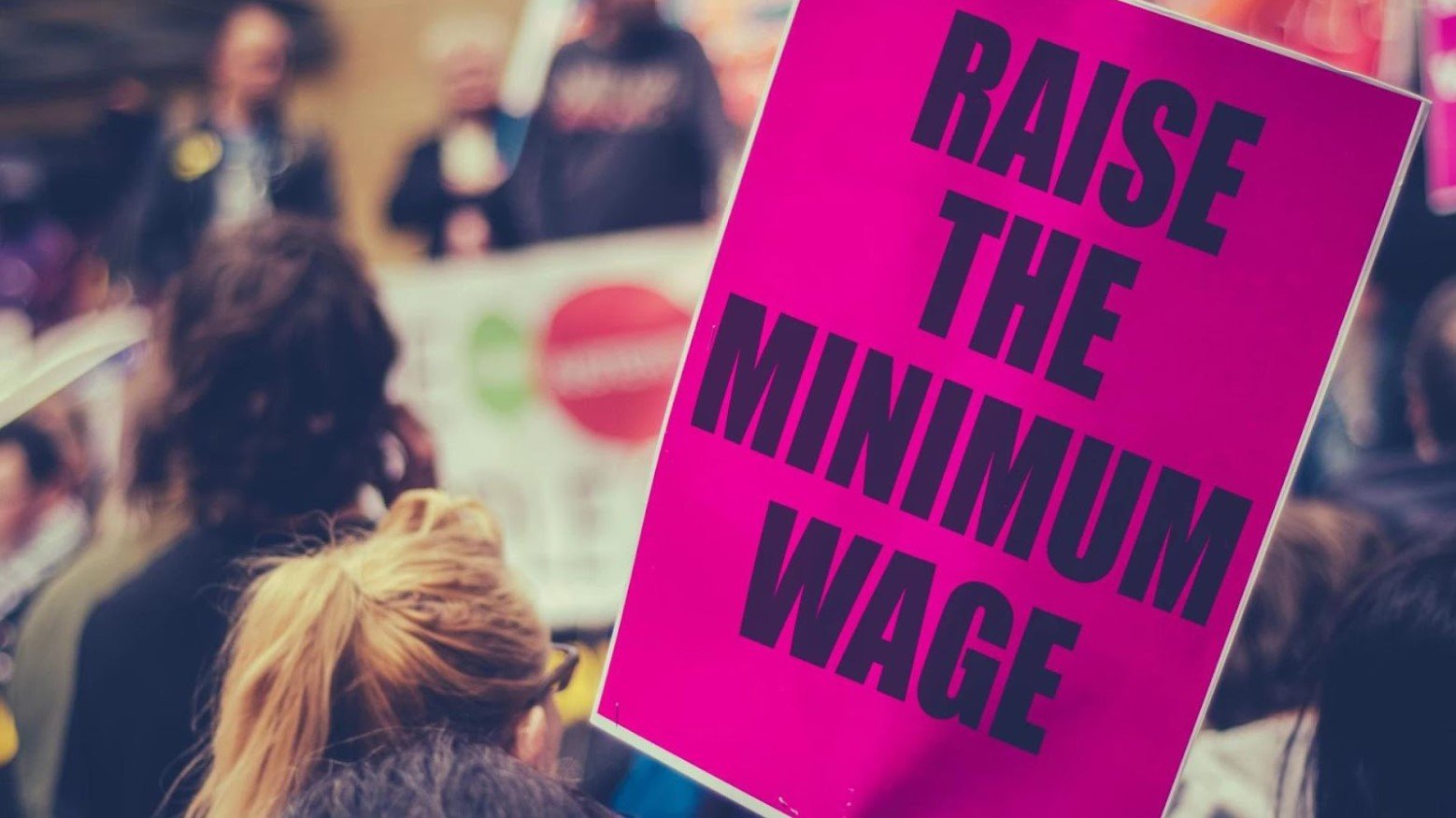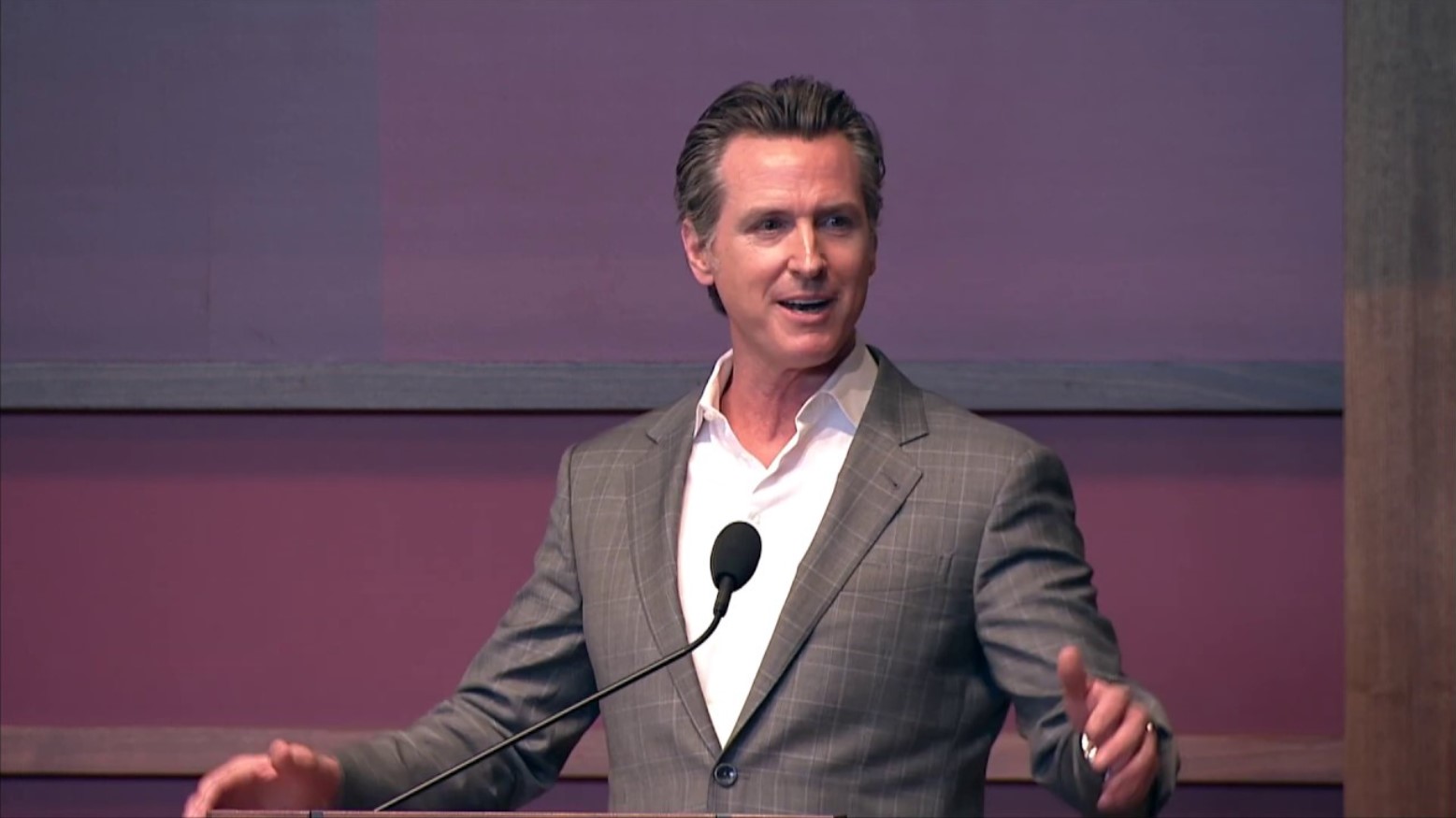The state of California has been making headlines all week, as its newest legislation to increase the minimum wage for fast food workers to $20 has gone into effect. But now, there’s a new ramification no one thought of.
It seems that hundreds of California’s schools may struggle to staff their lunch rooms as many workers are likely to leave the cafeteria for a much higher-paying job at a fast food restaurant. And this exodus couldn’t have come at a worse time.
New California Law Raises Minimum Wage for Fast Food Workers

Before diving into the ins and outs of the school lunch workers issue, it’s first important to understand California’s new minimum wage law.
Thanks to the Golden State Governor, Gavin Newsom, all fast food chains with 60 or more locations around the country must pay their employees in California at least $20 per hour as of April 1, 2024. Which is quite a significant jump from the $16 they were paying before.
The New Law Doesn’t Apply to California’s School Food Workers

However, this law does not apply to those who work in food service in California’s many schools. Therefore, there is a big concern among these schools that they soon will not have enough staff to run their cafeterias.
If someone could make $20 an hour at McDonald’s versus $16 at a school, why wouldn’t they start looking for a job that paid them 25% more for very similar work?
Fast Food Restaurants May Be Laying Off Workers in the Near Future

It’s important to note that there are several benefits to working in California’s schools as opposed to a fast food restaurant.
The first is, with the increase in the minimum wage, many California fast food restaurants could be laying off hundreds of employees in the coming months. Therefore, even if one finds a new job at a McDonald’s, Burger King, or Chipotle, they are certainly at risk of losing it before the year’s up.
There Are Many Benefits to Working in Schools

Additionally, the hours at fast food chains are far more strenuous than those at school cafeterias. No shifts at night, on the weekends, or all summer long means working at the state’s schools is usually a much better option for parents.
Not to mention that working for the state means employees always have health insurance, paid vacations, and even substantial pension options.
Finding Meaning in the Work

Also, there are certainly a large number of school cafeteria workers who find their job fulfilling in a way that working in a fast food restaurant never could.
Nuria Alvarenga told the Associated Press that she used to work at the local middle school but has since moved to the high school, emphasizing that it brings her real joy to see the children growing up. She also said, “I’m so glad they still remember me.” Something she wouldn’t be able to experience working anywhere else.
Money Still Matters

But even with the threat of possible layoffs, less convenient hours, a lack of fulfillment, and fewer benefits, some California residents simply won’t be able to turn down the opportunity to make significantly more money.
Even Nuria Alvarenga, who loves her job, is considering a move. The truth is that California has become so expensive, many don’t feel as though they have another option.
Some School Districts Have Already Made Their Own Changes to Combat the Possible Problem

In order to combat this issue, several school districts throughout the state have already made adjustments to their budgets and increased pay for their food service workers.
The Sacramento Unified School District agreed to raise its hourly for food service workers by 10% and plans to increase it to $20 in July. Additionally, San Luis Coastal Unified hired twice as many food service employees this year in order to ensure no one was overworked. However, some districts simply don’t have the money to make these types of changes.
This Change Couldn’t Have Come at a Worse Time for California School Districts

Many of the state’s schools have absolutely no money to increase their wages because they’re spending more than ever before on food for their students.
In fact, the new fast food minimum wage law truly couldn’t have come at a worse time for California school districts as they recently made a big change of their own. As of 2021, California became the first state to provide free meals for each and every student. Which increased the number of meals being served in public schools by 70 million since before the new legislation.
What Does Gov. Newsom Have to Say About All This?

Democratic Governor Gavin Newsom was the one to pass the law, ensuring all California students get a free meal at school, as well as the newest policy enforcing a $20 minimum wage at fast food restaurants. So, what does he have to say about all this?
While the controversial governor has vowed to ensure all state-run schools have the funding they need to succeed, he has yet to comment on this specific issue. But he may have to soon if schools see workers leaving in droves in favor of working in fast food.
Will Newsom Enact a Required Increase for School Food Service Workers?

By now, everyone knows that Gov. Newsom is no stranger to new legislation, so some wonder if he will soon pass a law that increases the minimum wage of the state’s school food service workers.
However, as California is already billions of dollars in debt, the majority of experts don’t believe the governor will spend more this year. Even if it could save the state’s schools from a staffing crisis.
California Is Currently in the Hot Seat

It seems that all anyone can talk about these days is the state of California and its constantly changing policies and legislation, including what they mean for residents, businesses, and the future of the state as a whole.
Now, there’s one more topic to add to the list of concerns. Of course, whether increasing the fast food minimum wage really will result in schools struggling to staff their cafeterias is yet to be seen. Sadly, if it does, it will be the children of the Golden State who suffer the consequences.
